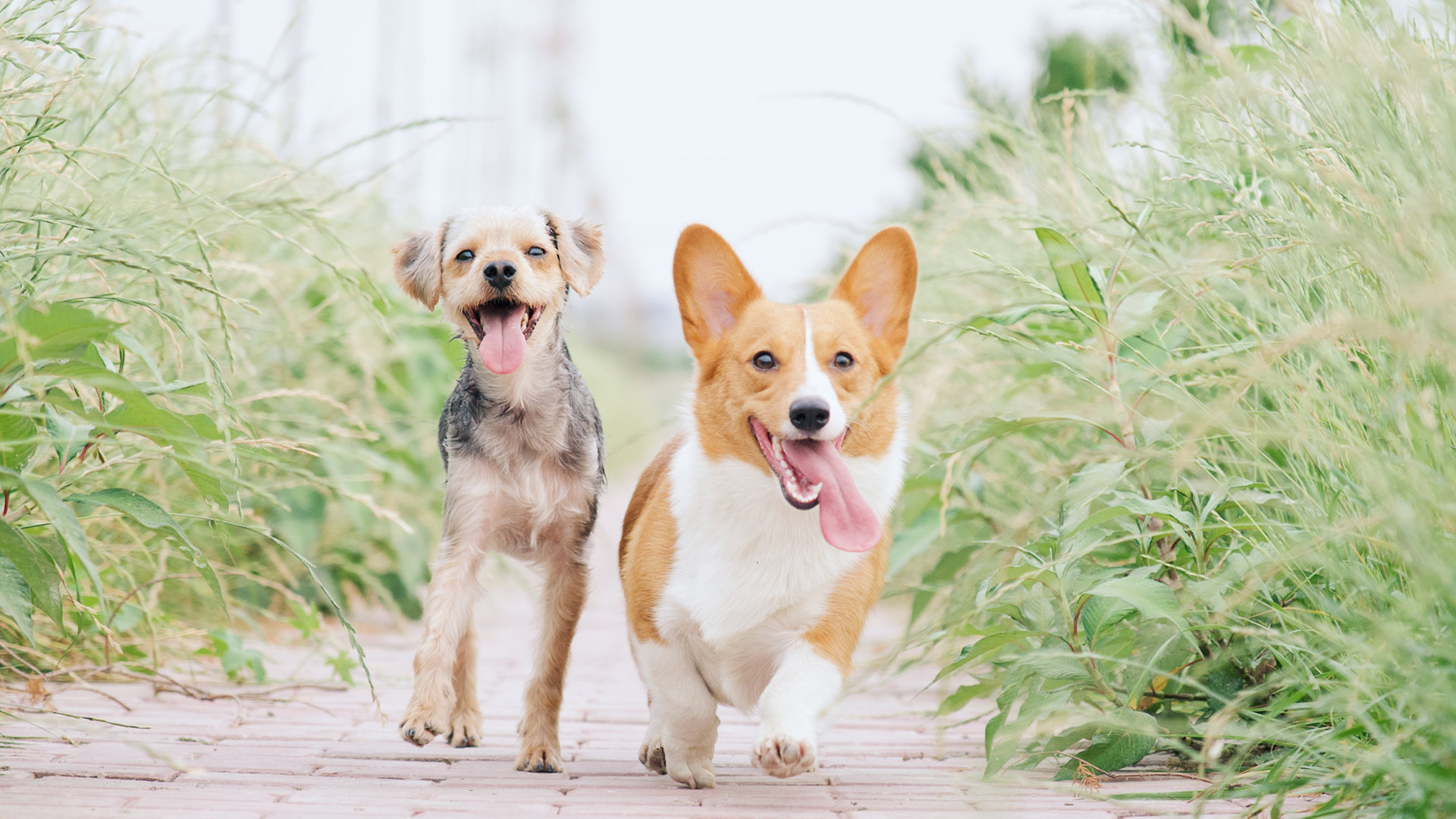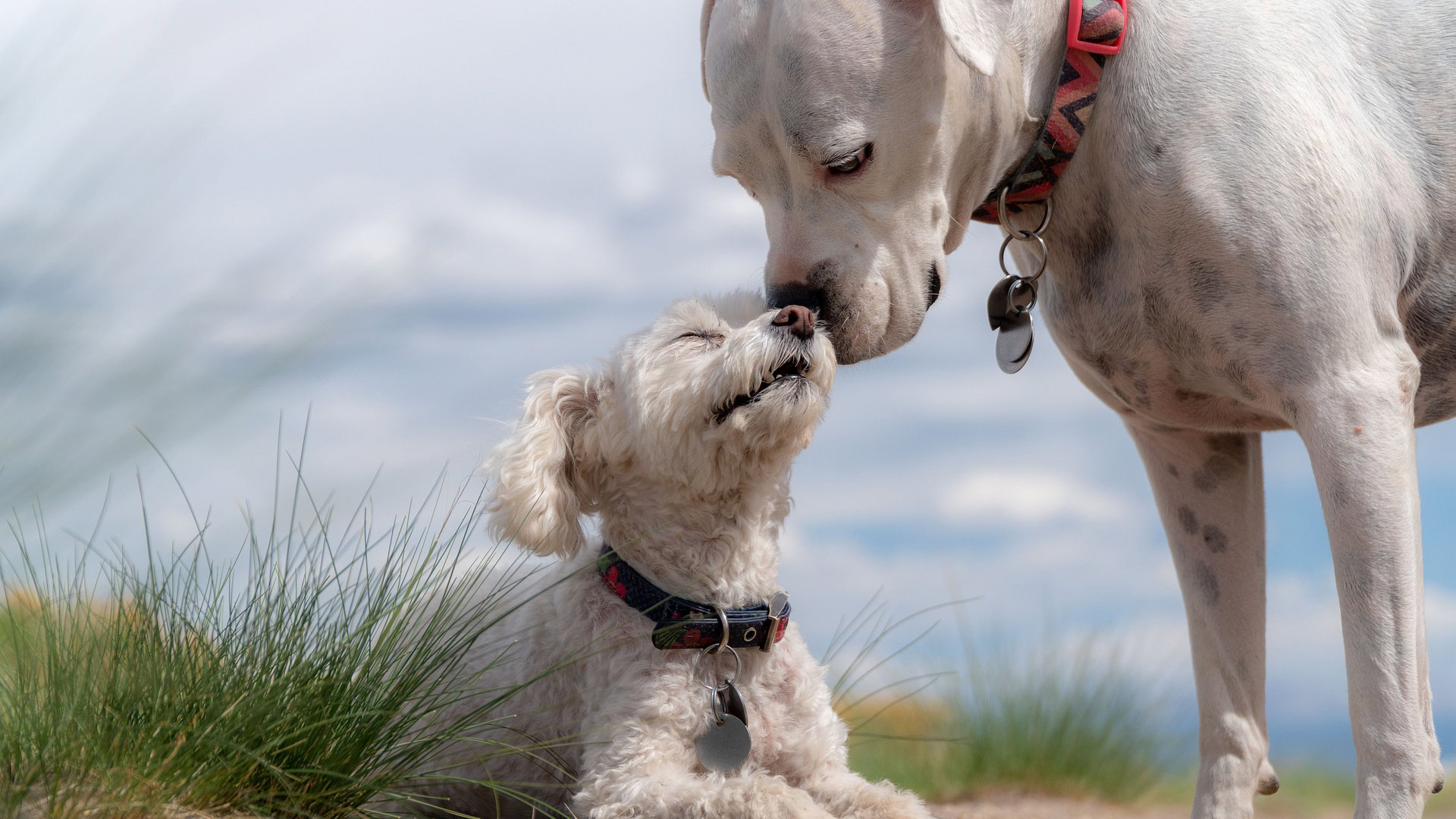
So you’re thinking about adding a puppy to your family, but you’re nervous because you already have an older dog. Will they get along? Will they be best friends? Will the older dog resent the puppy? Those are probably some of the questions going through your head. So, how can you help transition your dog into this new life of having a sibling?
Before getting a puppy
You and your older dog have been through years of adventures and fun. As he got older, though, the adventures don’t come as often, and the fun times are a little shorter. The sad reality is that your dog is aging. Before getting a puppy, consider your dog’s physical health. Does he have any health issues? Can he handle a small ball of energy running around the house? Puppies are energetic, and your older dog will need to be able to handle it. If your dog has health issues, then meeting with a vet before getting a puppy is necessary. Talk to your vet about his future health.
While physical health is a major factor to consider, mental health also needs to be assessed. Look for signs of confusion, anxiety, or even fear in your dog. Bringing a puppy into the picture may be unfair to your older dog. He may require special attention for his mental health, and a puppy could cause issues with that. Give your older dog the space to heal, and don’t add to his anxiety.

Getting to know each other
Dogs are nosey creatures, and your older dog will want to sniff out the puppy. Let him! He’ll want to follow the puppy everywhere and see what he’s all about. Your puppy is also nosey and rambunctious. He’ll want to play and hang out with your older dog. Puppies have entirely different social skills, and it’ll take some time for your puppy to figure out what’s acceptable to your older dog. It’ll take some time for the two to figure each other out, but the two will begin to understand each other’s quirks. Puppies don’t have as much control as older dogs, and that will lead to your puppy crossing social boundaries. He’ll look to your older dog for guidance. It’s important to monitor their interactions in the beginning and always to remain calm. Your dog can sense tension, and if you’re stressed, then he’ll be stressed too.

You and your older dog
You’ve had your dog for years. He adores you! Bringing in a new puppy can alter the bond you’ve formed with him. Dogs are pack animals, and your dog will need to be reminded he’s number one in your heart. This doesn’t mean you can’t love your new puppy, though. If your dog starts to feel you pull away, he may begin to resent the puppy, leading to issues. Keep some of your traditions alive and spend one on one time together. Be sure to let him know that you're not replacing him but simply adding to the family.
Conclusion
Puppies can be such a wonderful addition to a family. It’s important to take a realistic look at your older dog, though. Is he healthy enough to handle the new addition? A puppy and an older dog can become best friends! They can play, nap, and love together. Let them get to know each other and let them figure each other out. Remember to monitor their interactions in the beginning. Keep the bond between you and your older dog alive. He loves you, and he’s been by your side for years. Don’t push your older dog to the background and give all your attention to the puppy. Let him know he’s still your number one, and your love isn’t going anywhere.










